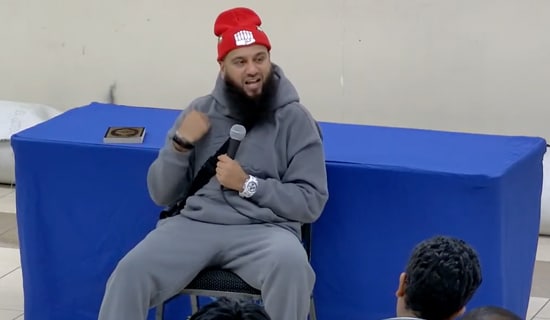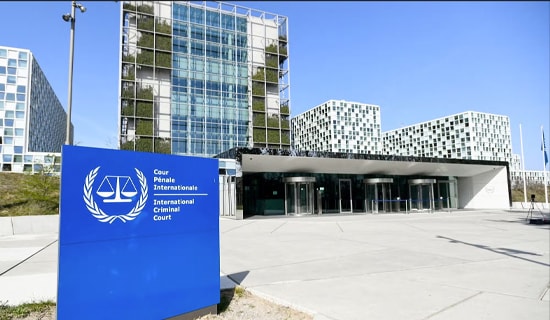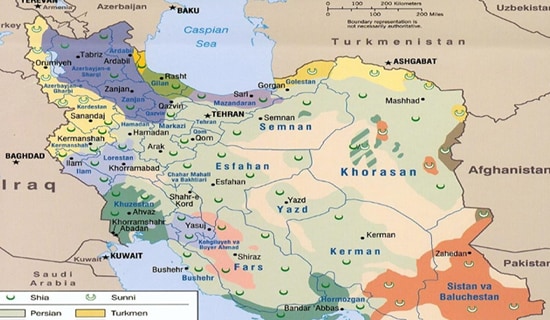The following are excerpts from three interviews with members of Saddam Hussein's legal defense team. The interviews were aired on LBC TV and on Al-Arabiya TV, on January 14, January 18, and January 22, 2007.
TO VIEW THIS CLIP VISIT: http://memritv.org/clip/en/1365.htm.
LBC TV, January 14, 2007:
Wadud Shams Al-Din: "I met him near the airport. The meeting lasted over two hours. In the middle of the meeting, the Americans asked him to submit a request authorizing someone to receive his personal effects from the prison. He asked me to formulate the document."
Interviewer: "What did the president's effects include?"
Wadud Shams Al-Din: "Clothes, books, documents he wrote, poems, many things."
Interviewer: "On the psychological level, on the eve of the execution - what was the president's condition?"
Wadud Shams Al-Din: "His morale was very high. When I started writing the request, my tears began to flow, because I knew that this meeting would, in all probability, be our last. He was smoking a cigar. He looked at me and began to laugh. When I completed the request, I gave it to the American officer. Saddam looked at me and said: 'Wadud, men do not cry in times of hardship.'"
Interviewer: "Did you ask President Saddam Hussein to do something which he refused?"
Wadud Shams Al-Din: "I asked him, together with a colleague of mine, to appeal to the Pope. He said: 'I will appeal to no one but my Lord, Allah.' His exact words were: 'What shall I say to my Lord, and what shall I say to the Iraqis, to the nation, and to the fighters - that in his final moments, Saddam Hussein made a compromise to save his life? I will appeal to no one but my Lord, Allah.'"
[...]
Interviewer: "What were the president's relations with the Americans guarding him in prison?"
Wadud Shams Al-Din: "All the prison guards who were with him held him in high esteem. There was an American officer who was in charge of him, who was later transferred when his mission was over. When that officer came to say goodbye, he embraced him, and began to weep. Even the martyred president cried."
[...]
Al-Arabiya TV, January 18, 2007
Interviewer: "Why did some people, when asked for their opinion, say that Saddam's execution by hanging failed to follow international norms?"
Bushra Khalil: "Of course it didn't. First of all, they say that they did it the English way. The English way is to put the noose on from the side. But using fiber rope is forbidden to begin with. We plan to sue them for using this method, because they should have..."
Interviewer: "Are you talking about the type of rope...?"
Bushra Khalil: "Let me tell you that it is the fiber rope that makes the neck snap. Saddam did not suffocate to death. 'Suffocation to death' means pressing down upon the neck until the airway is closed, and the person is strangulated to death. Saddam died of a broken neck. He was not sentenced to 'death by neck-breaking,' yet this is what happened..."
Interviewer: "So he suffered more?"
Bushra Khalil: "Of course. His neck snapped. Of course. This is killing by breaking the neck, which is a violation of the court sentence. Generally, silk rope is used to cause suffocation. The silk rope applies pressure, the air is blocked, and the man dies of strangulation."
[...]
Al-Arabiya TV, January 22, 2007
'Issam Al-Ghazawi: "The execution of President Saddam Hussein is one of the greatest crimes of our times, perpetrated by the largest country in this century - the United States of America. It committed a crime of assassination - not execution - of the president. No occupying country in the world is allowed to alter or enact laws. The U.S. enacted laws, appointed judges, issued the death sentence, and carried it out."
[...]
"It is my right and the right of any citizen and any Iraqi to demand that the current regime in Iraq be placed on trial."
Interviewer: "But you are not an Iraqi, are you?"
'Issam Al-Ghazawi: "Sir, I am not an Iraqi, but there are many Iraqis who wish they could place these people on trial and I was personally told about this."
[...]
Interviewer: "With regard to the Dujail case, was your defense an attempt to prove that the execution of 148 people never took place, or that the execution took place, but you tried to justify it?"
'Issam Al-Ghazawi: "Sir, an assassination attempt on the president of a country was carried out by a hostile political party, which collaborated with a country in a state of war with Iraq. If any Iranian had collaborated with Iraq during the war, he would have faced execution. Their punishment for being a member of this collaborating political party, which collaborates with the enemy during wartime, is execution, let alone when, in addition, they tried to assassinate the president. Are Saddam Hussein, his colleagues, and his regime supposed to give them gifts? Are they supposed to shower them with flowers? This runs counter to logic."
Interviewer: "As a lawyer, you justify... Even if there was an attempt to attack the former president, do you justify the execution of 148 people? Did 148 people open fire on the former president? This is more or less what you are saying, isn't it?"
'Issam Al-Ghazawi: "No sir, that's not true. What I am saying is that they carried out... According to the documents and the court's statements, there was an assassination attempt against the former president - they themselves say this... It was carried out in Dujail by a small number of people - maybe no more than 10 people - but the president, so they say, went too far by executing 148 people. If, by surprise, the president... The president does not announce his schedule, and even those who accompany him learn about it only when they are on the way. If 10 people were ready to open fire on him, how many people must have supported them with logistics, money, weapons, and all those boring details, which enabled them to know that the president would be passing by? It's very simple. When President Saddam Hussein tried to assassinate Abd Al-Karim Qassem, he carried it out himself, but there were 250 people around him, who planned it, were in charge of communications, and so on."
Interviewer: "Mr. Ghazawi..."
'Issam Al-Ghazawi: "If 10 people tried to assassinate the president..."
Interviewer: "Mr. Ghazawi, in this case you are speculating that since in the attempt to assassinate Abd Al-Karim Qassem there were people in charge of logistics around [Saddam]... How do you know that 10 people shot at the former president, but the rest were logistics people?"
'Issam Al-Ghazawi: "It's very simple. I used reason to infer it. We asked the president how many people participated in the attempt to assassinate Abd Al-Karim Qassem. He said: 'In order to carry it out, it was just me, but 250 people were scattered all over Baghdad, and we stayed in contact all the time, so we would know where Qassem was.' So if when one person carried it out, there were 250 people behind him, how many people were involved when 10 men carried it out?"








